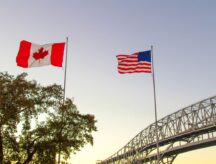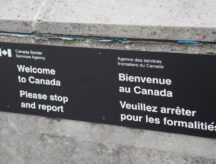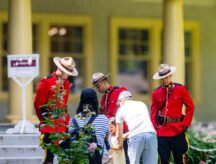Supreme Court of Canada determines that a person can only be inadmissible to Canada if they are a threat to national security
On September 27, the Supreme Court of Canada released a very important immigration law decision that limits the power of immigration officials and tribunals to remove foreign nationals with no criminal convictions on security grounds.
Schedule a Free Legal Consultation with the Cohen Immigration Law Firm
The case before the Supreme Court, Mason v Canada (Citizenship and Immigration), concerned Earl Mason and Seifeslam Dleiow, who were both foreign nationals in Canada. Mr. Mason was charged with attempted murder and discharging a firearm following an argument with a man in a bar. The charges were eventually dropped because of delay. In Mr. Dleiow’s case, he was alleged to have engaged in acts of violence against intimate partners. Some of these charges were dropped and he pled guilty to three others.
Following both these incidents, Canada Border Services Agency (CBSA) prepared reports alleging that both men were inadmissible to Canada pursuant to s. 34(1)(e) of the Immigration and Refugee Protection Act (IRPA).
Section 34(1)(e) of the IRPA states that “a permanent resident or a foreign national is inadmissible on security grounds for engaging in acts of violence that would or might endanger the lives or safety of persons in Canada.”
The two men were ultimately found inadmissible to Canada. The inadmissibility tribunal interpreted “acts of violence” under section 34(1)(e) in a broad sense, without requiring there to be a link to national security or the security of Canada. This meant that the violent conduct of both men, even though posing no threat to national security, was still enough to find the men inadmissible to Canada.
The two men disagreed and appealed their decisions, eventually making it all the way to the Supreme Court.
The Supreme Court held that a person can only be found inadmissible to the country under section 34(1)(e) of the IRPA if they engage in violent conduct linked to national security or the security of Canada. Since neither Mr. Mason nor Mr. Dleiow were alleged to have engaged in acts of violence linked to national security or the security of Canada, section 34(1)(e) did not provide a basis for the inadmissibility of either person.
The case provided the Supreme Court of Canada with the opportunity to clarify how expansive Canada’s security inadmissibility provisions are and how they should be interpreted when considering inadmissibility to the country.
According to advocates and legal experts, the decision will restrict authorities and government tribunals from casting the net too widely to capture people they want out of the country, and account for deportation decisions.
Schedule a Free Legal Consultation with the Cohen Immigration Law Firm
- Do you need Canadian immigration assistance? Contact the Contact Cohen Immigration Law firm by completing our form
- Send us your feedback or your non-legal assistance questions by emailing us at media@canadavisa.com







